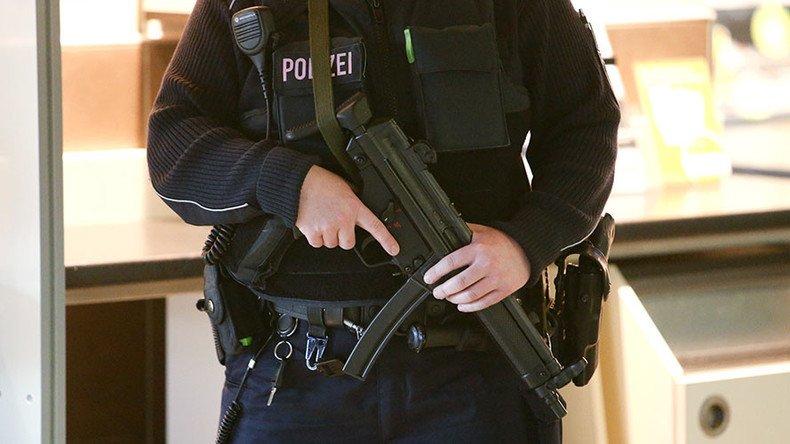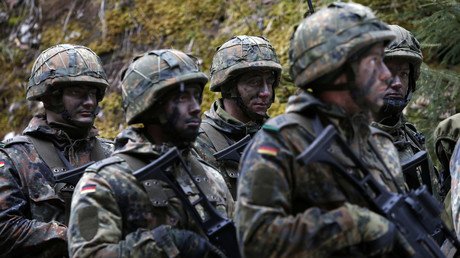Number of potential terrorists in Germany is higher than ever – German interior minister

There are more people in Germany who could potentially commit terrorist acts than ever in the past, German Interior Minister Thomas de Maiziere told German daily Bild in an interview, adding that the terrorist threat in Germany is “very real.”
More than 520 people in Germany are capable of committing “unexpected” and potentially “high-profile” terrorist attacks inspired by Islamism, de Maiziere said in the interview, published on the eve of the 15th anniversary of the 9/11 attacks in the US. He also added that the current number of potential terrorists in Germany is at its highest in history.
The minister also warned that, along with potential Islamist attackers, there are also about 360 people who are “closely affiliated” with them and could lend assistance in preparing an attack or “provide logistical support” to the assailants. He added that such people usually belong to potential terrorists’ “inner circle”.
De Maiziere emphasized that “today, the threat comes from both hit-teams [arriving in Germany] from abroad and radicalized lone wolfs in Germany.”
“Both threats are now very real,” he added.
He said that the hit-teams “are secretly smuggled into Europe and prepare their actions without being noticed, as we saw with the attacks in Paris and Brussels.”
The minister stressed that the German security services are “working intensively” in order to “keep all potential terrorists in sight,” adding that there have been more investigations and arrests in 2016 than in the last few years.
He also admitted that it is much harder for security services to identify “radicalized lone wolves” than organized hit-teams as they “get radicalized with Islamist propaganda in the Internet or by hate-preachers.”
He warned that, despite all the efforts of security services, there could be as of yet unidentified potential attackers.
One ‘should not suspect all Muslims’
At the same time, de Maiziere stressed that Germans should not suspect or blame all Muslims. He also said that Islamists are exploiting religion in “justifying” killing by Islamic beliefs.
Although Islamist terrorism “has something to do with Islam,” Islam “by no means carries the seeds of terrorism,” the minister said, as quoted by Der Spiegel. He also added that most victims of terrorist attacks are actually Muslims.
De Maiziere also addressed German Muslims in his interview and called on Muslim communities to “notice if some particular persons are in the process of radicalization and take timely measures.” He also urged them to distance themselves from Islamist terrorists.
The minister’s comments come as a German Federal Office for Migration and Refugees advisory agency says that a growing number of girls and young women are being radicalized in Germany. In 2015, a half of those radicalized were girls while previously they only constituted 25 percent of all cases, Neue Osnabrücker Zeitung reported, citing data from the advisory agency.
The younger girls are radicalized year after year, according to Michael Kiefer from the Institute of Islamic Theology of the University of Osnabrueck, who told Der Spiegel that “13-year-old girls are among those, who are radicalized.”
This summer, Germany witnessed two major terrorist attacks. On July 24, a 27-year-old Syrian refugee, who had pledged allegiance to the leader of Islamic State (IS, formerly ISIS/ISIL), detonated a bomb in the Bavarian town of Ansbach, killing himself and injuring 15 people.
On 18 July 2016, a 17-year-old refugee injured five people when he attacked passengers with a knife and hatchet on a train near Wuerzburg. Following the attacks, German Chancellor Angela Merkel said that the EU needs stricter border controls and special warning systems to properly process the migrant influx.
However, Merkel still refuses to change her welcoming refugee policy that has been criticized by both her political rivals and allies. In the meantime, the right wing populist anti-immigrant Alternative for Germany party (AfD) beat Angela Merkel’s Christian Democratic Union (CDU) in her home state and is now represented in eight out of 16 regional parliaments. Merkel’s popularity rating continues to plunge at the same time.














